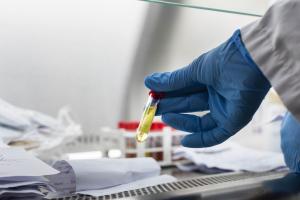What fuels the use of unproven COVID-19 therapies?
Pretoria – The emergence of COVID-19 and the pandemic have raised many challenges regarding treatment and spawned the use of unproven therapies. Professor Lucille Blumberg, the Deputy Director of the South African National Institute for Communicable Diseases, discusses the causes, the risks and how to tackle unproven COVID-19 cures.
How widespread is the use of unproven COVID-19 treatment in Africa?
It is difficult to estimate how widespread the phenomenon is. Many medical products are purchased outside of formal pharmacies and there is no documentation of their use. It is thus difficult to confirm if they are being used for COVID-19. Some of the drugs are ivermectin, colchicine, chloroquine, dihydrochloroquine, hydrogen peroxide, antimalaria drugs such as artemisinin. Ivermectin is a very effective drug for river blindness and for some parasitic diseases especially in animals. But there is inadequate evidence that it is effective for COVID-19 prevention or treatment.
What fuels the use of unproven treatments and what are the consequences?
The fear of COVID-19, family and patient pressure, a desperate need to do something especially if the patient is very ill, as well as the absence of national guidelines. Fake news, social media and internet searches are especially problematic. The publication of poorly conducted “studies” especially those that are not adequately reviewed or published “in context” or studies that get published in journals that are not considered reliable as well as studies whose results are overstated or misinterpreted by the reader. Small studies that have limited participants and studies that don’t compare treatments to the best available ones also add to the problem.
This results in a waste of resources, loss of faith in the medical system and gives false hopes while providing no improvement in illness.
What are the current standard COVID-19 treatments?
There have been extraordinary efforts to identify specific medications that fight the virus itself or work on limiting the damage caused by the virus. The results of these studies are very variable in quality and size and may not provide enough evidence for the benefit of the use of the medication or information about the dosage schedule or side effects. Some treatments identified are not affordable or easily available everywhere.
Excellent scientific studies have shown that for COVID-19 pneumonia, oxygen and cortisone (dexamethasone) administered to people with COVID-19 pneumonia are very effective and can be lifesaving if administered rapidly to people showing signs of COVID-19 pneumonia such as shortness of breath. Medication to stop blood clots, if available is also important at this stage.
Most younger people without any underlying health problems will recover well after being infected with COVID-19. People older than 60 years, those with diabetes, hypertension, cancer, HIV infected persons or those who are obese may experience more severe illness including COVID-19 pneumonia and blood clots, and sadly, some will die.
How can the use of unproven therapies be addressed?
Medical education using different platforms such as national directives and guidelines that are regularly updated, bringing together researchers to ensure studies have larger numbers of participants, proper analysis of results and strengthening the peer review process can help address the use of unproven treatment. Monitoring of social media and strengthening communications related to false or poor-quality recommendations must the bolstered. Guidance regarding reliable sites and guidelines where health professionals and communities can access information is key. Regulatory authorities in countries need to be involved and not bow to pressure to “approve” unproven medications.
The guiding principle of care is to “do no harm” especially during the COVID -19 pandemic where fears abound.



